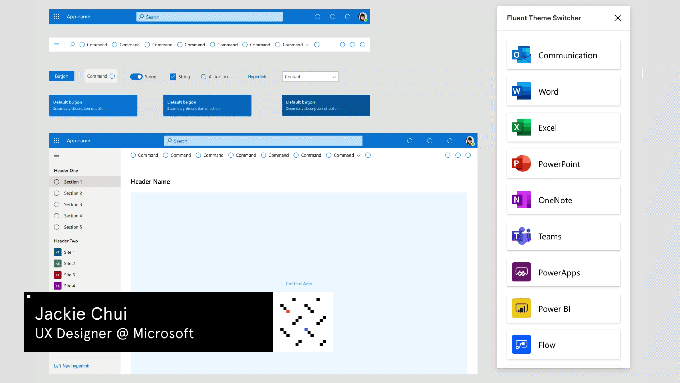Figma, the startup looking to put design tools in the cloud, has today announced new plugins for the platform that will help users clean up their workflows.
Figma cofounder and CEO Dylan Field says that plug-ins have been the most requested feature from users since the company’s launch. So, for the last year, the team has been working to build plug-in functionality on the back of Figma’s API (launched in March 2018) with three main priorities: stability, speed, and security.
The company has been testing plug-ins in beta for a while now, with 40 plug-ins approved at launch today.
Here are some of the standouts from launch today:
On the utility side, Rename It is a plug-in that allows designers to automatically rename and organize their layers as they work. Content Buddy, on the other hand, gives users the ability to add placeholder text (for things like phone numbers, names, etc.) that they can automatically find and replace later. Stark and ColorBlind are both accessibility plug-ins that help designers make sure their work meets the WCAG 2.0 contrast accessibility guidelines, and actually see their designs through the lens of eight different types of color vision deficiencies, respectively.
Other plug-ins allow for adding animation (Figmotion), changing themes (Themer), adding a Map to a design (Map Maker), and more.
Anyone can create plug-ins for public use on the Figma platform, but folks can also make private plug-ins for enterprise use, as well. For example, a Microsoft employee built a plug-in that automatically changes the theme of the design based on the various Microsoft products, such as Word, Outlook, etc.

Field says that the company currently has no plans to monetize plug-ins, which it says will be free to all. Rather, the addition of plug-ins to the platform is a move based on customer happiness and satisfaction. Moreover, Figma’s home on the web allows for the product to evolve more rapidly and in tune with customers. Rather than having to build each individual feature on its own, Figma can now open up the platform to its power users to build what they’d like into the web app.
Figma has raised a total of nearly $83 million since launch, according to Crunchbase. As of the company’s latest funding round ($40 million led by Sequoia six months ago), Figma was valued at $440 million post-funding.

No comments:
Post a Comment